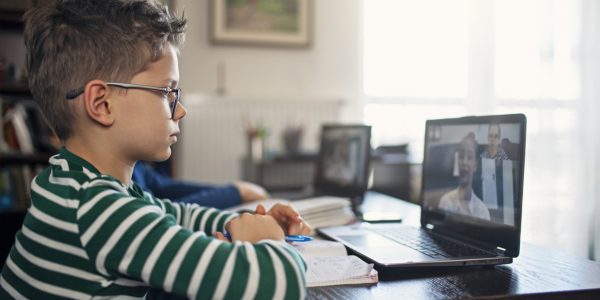
07/03/21
3 min read
Data from a new survey, conducted between 23 February and 2 March, provides some of the first evidence on how parents view the scale of the challenge of lost learning. It shows that, while 9 in 10 parents are happy to send children back to school on Monday, there are big concerns remaining over lost learning, with some fearing their children will never catch up.
Two-thirds of parents are concerned about lost learning. Among concerned parents with children in primary school, close to half think that their child will have recovered within a term. But a third of concerned parents think that recovery will take a school year or more. At secondary school, 9% of concerned parents think that their child will never make up for the pandemic’s effect on their learning.
Last week’s survey of almost 6,000 parents, run by the Institute for Fiscal Studies and funded by the Nuffield Foundation, also reveals that parents are now far more confident about the return to school than they were before the summer holidays. The survey found that nine in ten parents in England would send their child back to school on Monday even if the return were optional, compared with fewer than two-thirds of parents last summer.
- Two-thirds of parents are concerned that their child has lost out on learning. These proportions are similar across primary and secondary school and across families from different earnings groups.
- Support for catch-up policies is very high, with over 90% of parents in favour of at least some policies for academic catch-up. The most popular academic policy by some distance is tutoring, which over 80% of parents support.
- Support for policies that would increase the amount of learning time is much lower. Around half of parents favour a longer school day and fewer than half support extra homework, an extended term, summer school or repeating school years. Support for some of these policies is also more divided, with parents in the least well-off third around 10 percentage points less likely to support policies that would change the school schedule than those in the top third.
- Parents are almost as supportive of policies to promote children’s well-being as they are of academic support. However, there is less agreement about which specific policies would be preferable. Of the 83% who supported policies aimed at children’s well-being, the largest share believed that in-class activities (such as arts, creative writing or spending time outdoors) would make the biggest difference. Around a quarter of parents prioritised greater access to mental health services.
- Among parents who are still reluctant to return to in-person schooling, nearly half say that the COVID-19 case rate is the most important factor in their decision.
Angus Phimister, a Research Economist at the IFS, said: “The government’s plan to reopen schools in England to all pupils from Monday seems to be popular with parents, with nine in ten saying they would send their child back then even if it weren’t compulsory. Hopefully, this means that the return to school this time around will avoid widening the educational gaps between disadvantaged students and their better-off peers, as it did last summer when many less well-off parents were reluctant to send their children back to school.”
Christine Farquharson, a Senior Research Economist at the IFS, said: “Most parents agree that their child has lost out academically over the last year. But while close to half of those concerned think that the damage will be relatively short-lived, one in ten secondary school parents think their child will never catch up. While the tutoring programmes that the government has emphasised are hugely popular with parents, it is hard to believe that the £1.7 billion currently allocated to the recovery is anywhere near enough to meet the scale of this challenge.”






































